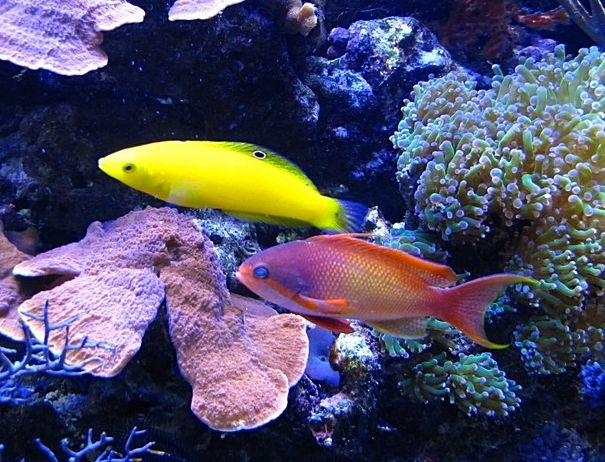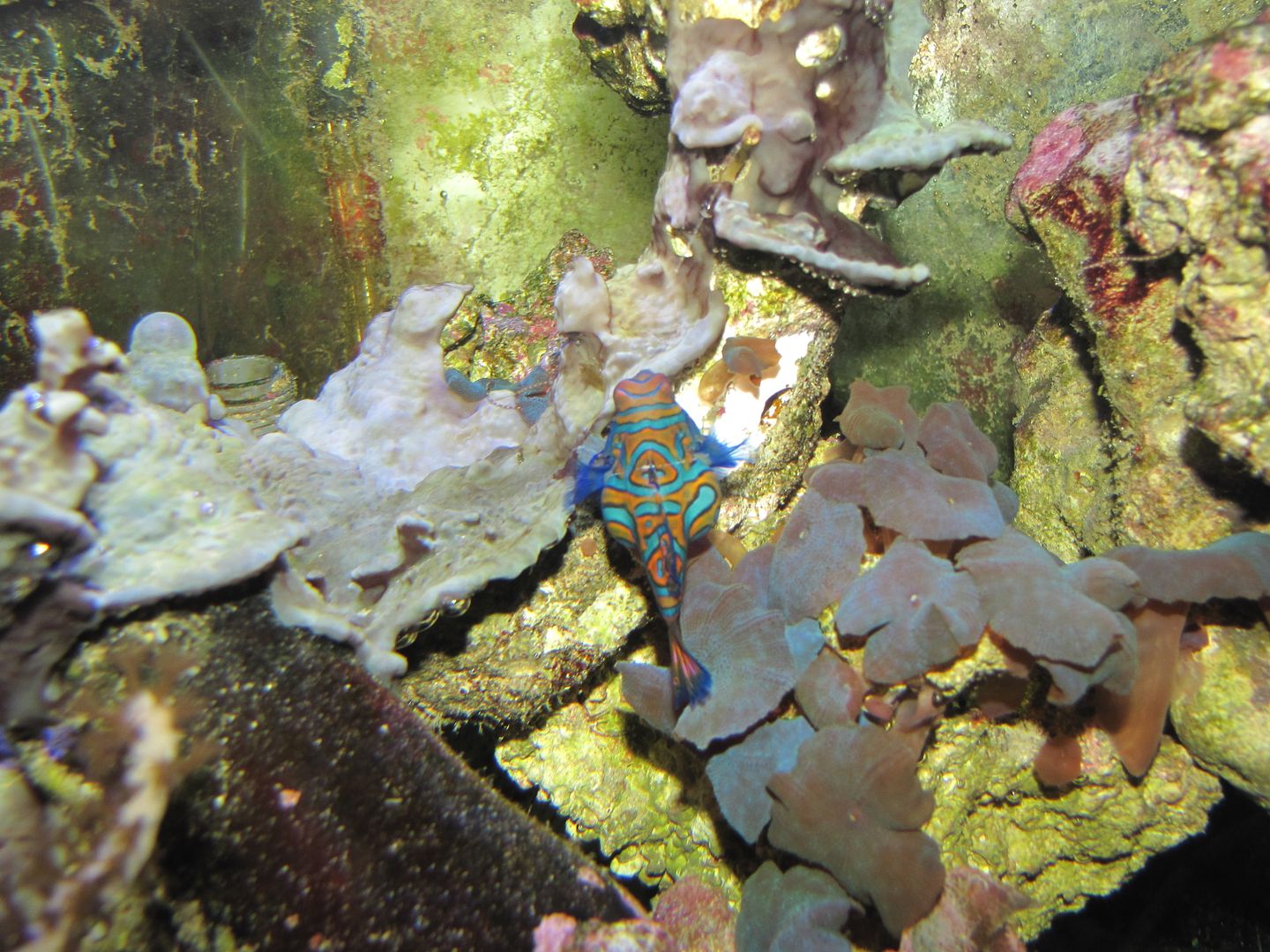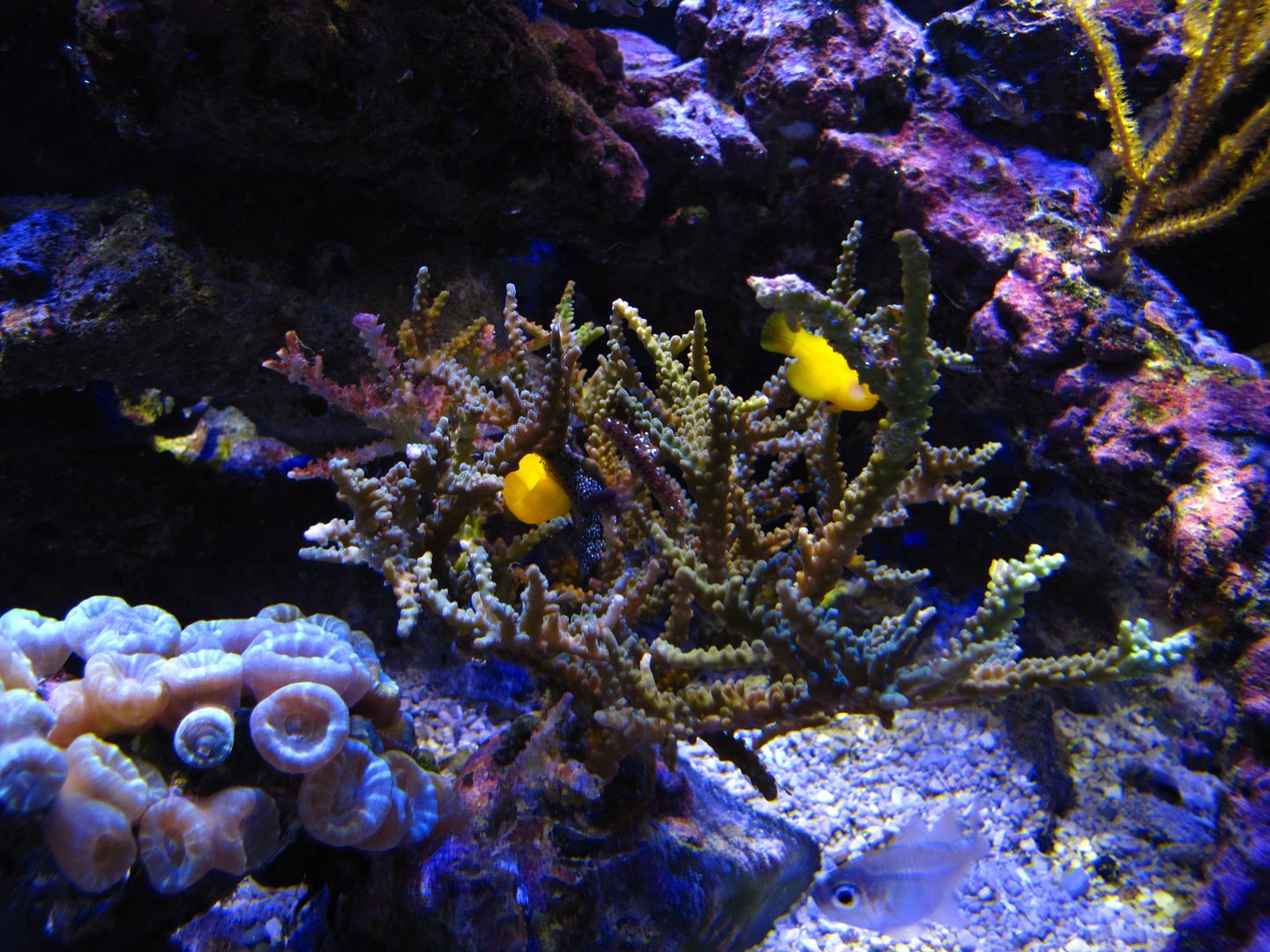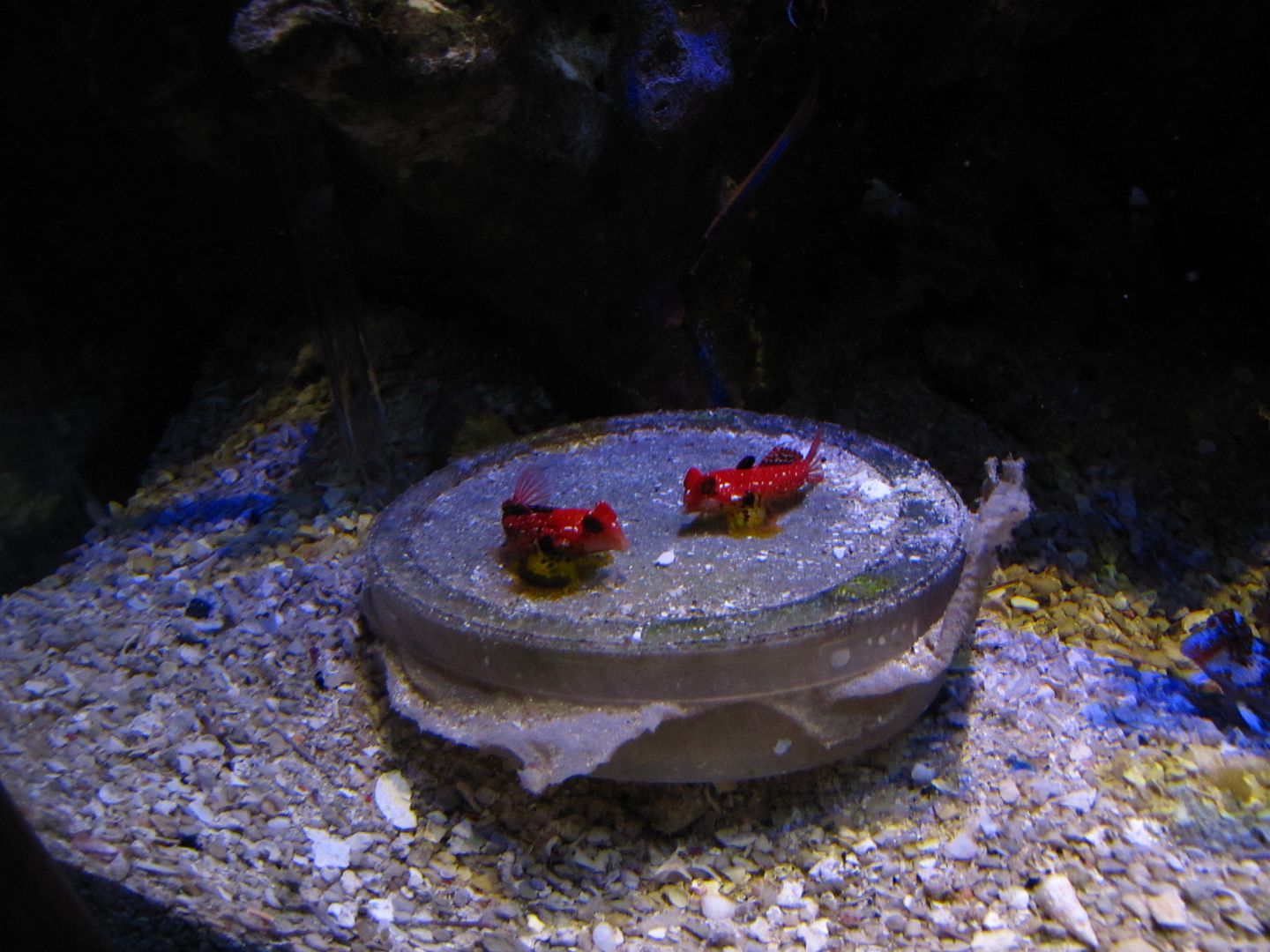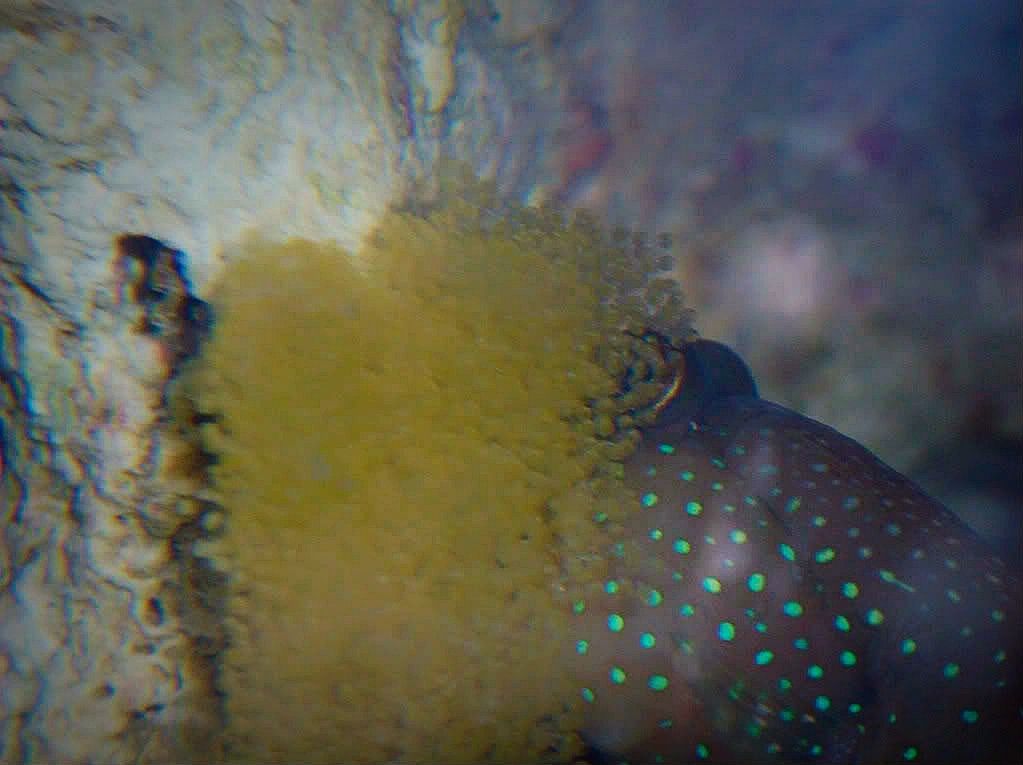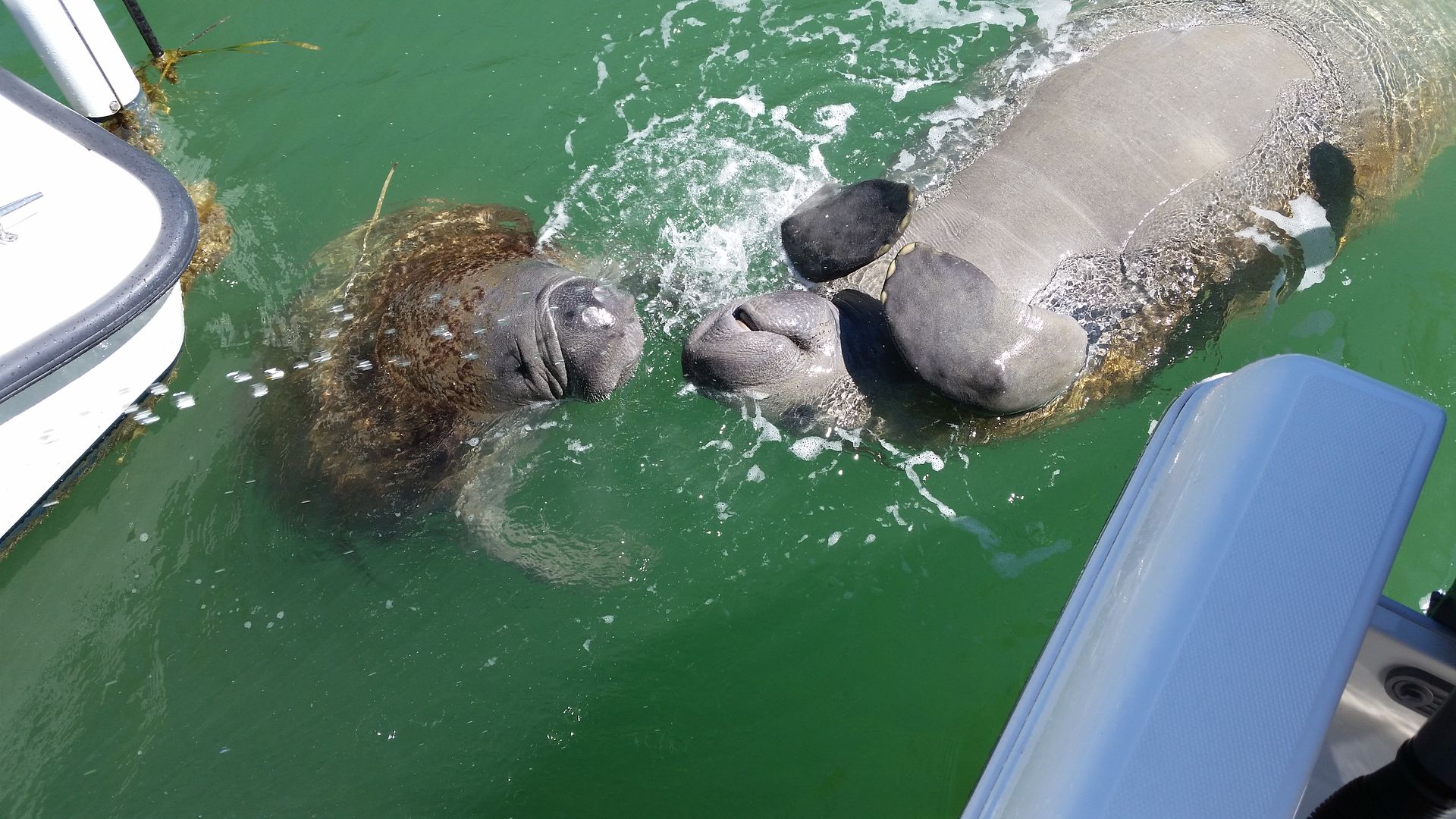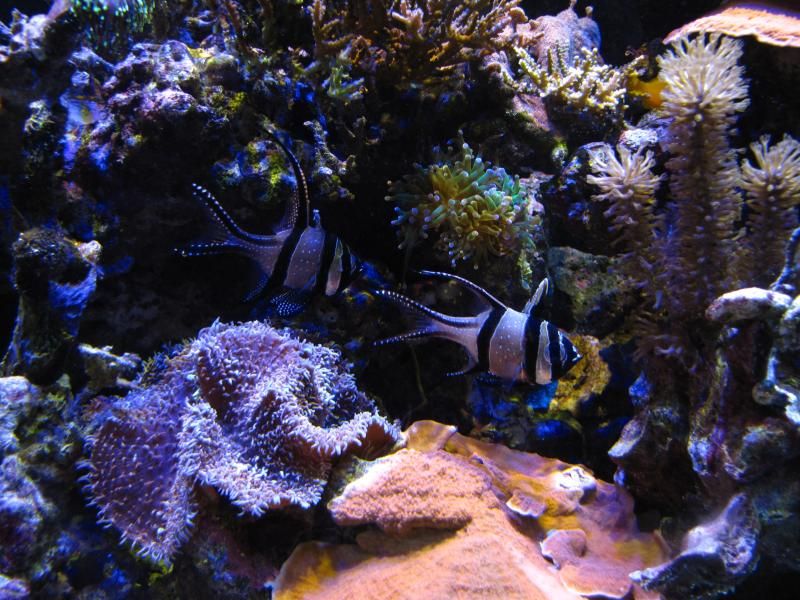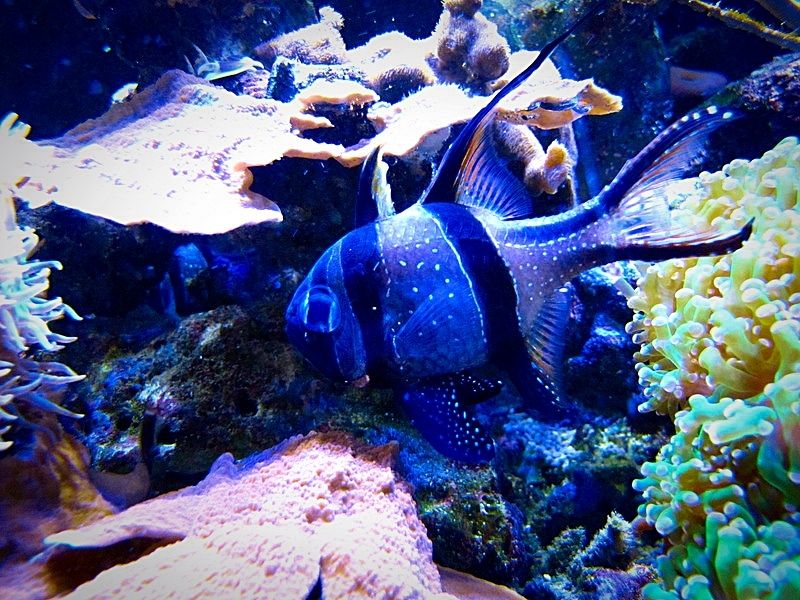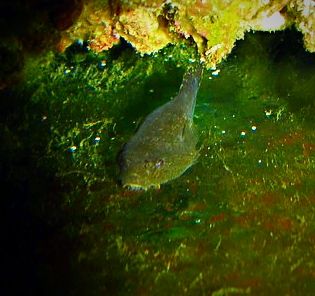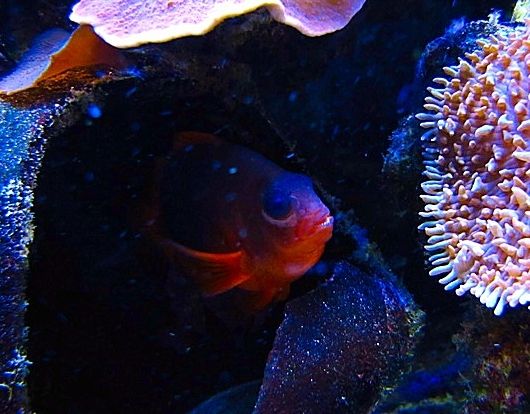Paul B
NJRC Member
The tank is still doing well. No problems, no diseases, no quaranting etc. I have lost some corals in the last couple of years. A couple of nice bubble corals and a bunch of acropora. I don't care about the acropora because that was the clown gobies that spawned all over it and killed it.. I have quite a bit of montipora and it seems that everything kills that so it has a hard time growing to big. The gorgonians sway into it and kill it. The sponges grow fast and block the light as do the large encrusting gorgonians and green star polyps. I keep giving away pieces of blue sponge, but it keeps growing. I kind of like it. I can't remember the last time I lost a fish but I am sure it was from jumping out. I think I have all the holes covered now so it is hard for something to get out.
The bluestripe pipefish and fireclowns are still spawning although I have not seen the bangai cardinals spawn in a while. They grew very large and it is hard to get enough food to them without dumping large clam pieces in there as they have huge mouths. I can get them to start spawning again with just a little more food but they are very healthy and old.
I have 3 filter feeding anemone crabs which I target feed as I do all my animals. The clingfish I especially target feed as he is a large eater but very lazy and probably near sighted because you need to put food right near him. Unless he is just a Sissy and afraid to come out in the open.
I am going to try to list the fish, (but I am sure I will leave some out)
Copperband
2 fireclowns
clingfish
queen anthius
2 bluestripe pipefish
2 mandarins
2 bangai cardinals
leopard wrasse
some other kind of anthius
watchman gobi
2 other gobie's
2 yellow wrasses
striped (who knows what it is wrasse)
clown gobi
Some wired pipefish
And this guy
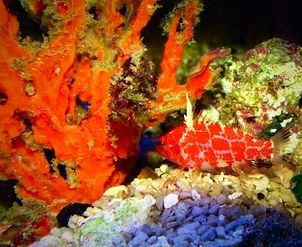
There are also 3 anemone crabs and 2 arrow crabs. I have no idea how many hermit crabs or other crabs there are.
In the summer I collect amphipods and mud a few times. The tank is at 80 degrees and that is about the only parameter I know.
Yesterday I was at my boat and I thought I blew an engine. I got the horrors because first of all, that would be very expensive and second of all, I would be boatless for the rest of the summer and I don't know how to live without a boat.
I changed the oil in both engines and when I shut down the port engine, it backfired and turned in reverse for one or two revolutions. In a boat, that is not good. I heard a big BANG!!!%#$Clank*&%$#BANK%$#&SWOOSH and another BANG. Then, nothing. It wouldn't start or even crank. Nothing, Nada, Kapoot. I thought by the sound I broke a connecting rod.
The marine mechanic just happened to be near me so I went over to him. (I am sure I frantically ran over to him practically shoving him into the water)
He told me that on my marine engine, and most marine engines, when that happens, the engine pumps water into the cylinders stopping the pistons from rising. Like Duh, of course. I was a car mechanic and cars don't do that. So all I had to do was to remove all the spark plugs from that engine and crank the starter. When I did that, about a gallon of water shot from the cylinders. I let out a loud sigh of relief because I knew that was the problem. I put the plugs back and after a few minutes of cranking my baby hummed back to life and my boating season is saved.
The bluestripe pipefish and fireclowns are still spawning although I have not seen the bangai cardinals spawn in a while. They grew very large and it is hard to get enough food to them without dumping large clam pieces in there as they have huge mouths. I can get them to start spawning again with just a little more food but they are very healthy and old.
I have 3 filter feeding anemone crabs which I target feed as I do all my animals. The clingfish I especially target feed as he is a large eater but very lazy and probably near sighted because you need to put food right near him. Unless he is just a Sissy and afraid to come out in the open.
I am going to try to list the fish, (but I am sure I will leave some out)
Copperband
2 fireclowns
clingfish
queen anthius
2 bluestripe pipefish
2 mandarins
2 bangai cardinals
leopard wrasse
some other kind of anthius
watchman gobi
2 other gobie's
2 yellow wrasses
striped (who knows what it is wrasse)
clown gobi
Some wired pipefish
And this guy

There are also 3 anemone crabs and 2 arrow crabs. I have no idea how many hermit crabs or other crabs there are.
In the summer I collect amphipods and mud a few times. The tank is at 80 degrees and that is about the only parameter I know.
Yesterday I was at my boat and I thought I blew an engine. I got the horrors because first of all, that would be very expensive and second of all, I would be boatless for the rest of the summer and I don't know how to live without a boat.
I changed the oil in both engines and when I shut down the port engine, it backfired and turned in reverse for one or two revolutions. In a boat, that is not good. I heard a big BANG!!!%#$Clank*&%$#BANK%$#&SWOOSH and another BANG. Then, nothing. It wouldn't start or even crank. Nothing, Nada, Kapoot. I thought by the sound I broke a connecting rod.
The marine mechanic just happened to be near me so I went over to him. (I am sure I frantically ran over to him practically shoving him into the water)
He told me that on my marine engine, and most marine engines, when that happens, the engine pumps water into the cylinders stopping the pistons from rising. Like Duh, of course. I was a car mechanic and cars don't do that. So all I had to do was to remove all the spark plugs from that engine and crank the starter. When I did that, about a gallon of water shot from the cylinders. I let out a loud sigh of relief because I knew that was the problem. I put the plugs back and after a few minutes of cranking my baby hummed back to life and my boating season is saved.


